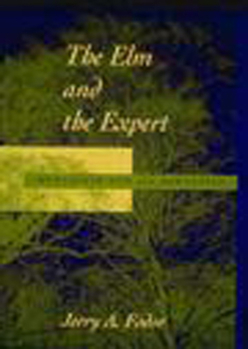The Elm and the Expert: Mentalese and Its Semantics (Jean Nicod Lectures)
(Part of the Jean Nicod Lectures Series)
Select Format
Select Condition 
Book Overview
Bound to be widely read and much discussed, The Elm and the Expert, written in Jerry Fodor's usual highly readable, irreverent style, provides a lively discussion of semantic issues about mental representation, with special attention to issues raised by Frege's problem, Twin cases, and the putative indeterminacy of reference. The book extends and revises a view of the relation between mind and meaning that the author has been developing since his 1975 book, The Language of Thought.
There is a general consensus among philosophers that a referential semantics for mental representation cannot support a robust account of intentional explanation. Fodor has himself espoused this view in previous publications, and it is widespread (if tacit) throughout the cognitive science community. This book is largely a reconsideration of the arguments that are supposed to ground this consensus. Fodor concludes that these considerations are far less decisive than has been supposed. He offers a theory sketch in which psychological explanation is intentional, psychological processes are computational, and the semantic properties of mental representations are referential. Connections with the problem of "naturalizing" intentionality are also explored.
The four lectures in The Elm and the Expert were originally delivered in Paris in the spring of 1993 to inaugurate the Jean Nicod Lecture series. The Jean Nicod Lectures are delivered annually by a leading philosopher of mind or philosophically oriented cognitive scientist. The 1993 lectures marked the centenary of the birth of the French philosopher and logician Jean Nicod (1893-1931). The lectures are sponsored by the Centre National de la Recherche Scientifique (CNRS) as part of its effort to develop the interdisciplinary field of cognitive science in France.
Jean Nicod series






